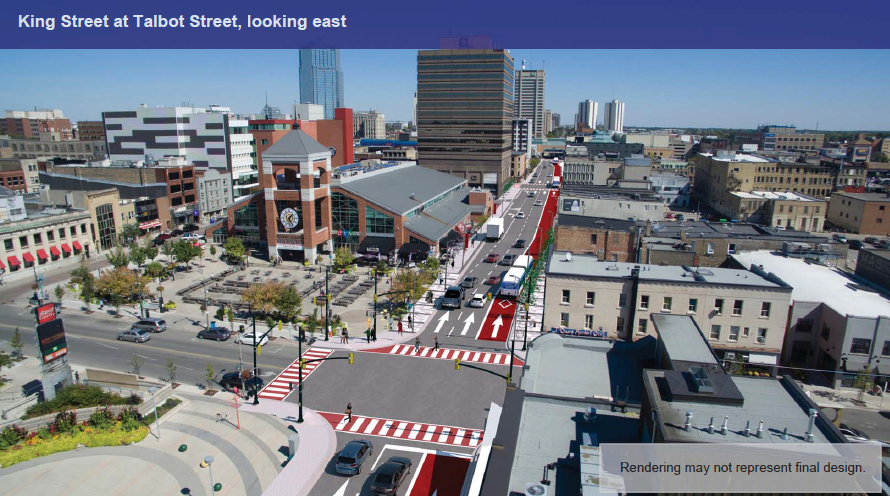The wheels of bus rapid transit in London are slowly turning with another round of open houses scheduled for this week following the unveiling of the recommended route configurations.

The recommended option for most routes is dedicated lanes for buses in the centre of the roadway. The dedicated lanes allow for buses to maintain their timing and use priority signals to move through the city.
“There’s also a lot of other benefits in terms of safety. So, all left-turn movements are now controlled with a priority signal where you have a protected phase of the intersection, allowing you to make safe left turns,” said rapid transit project director Jennie Ramsay.
“We’ve seen cities like York Region where they’ve actually had a decrease in the number of accidents along centre-running BRT lanes.”
In addition to safety and reliability, Ramsay told reporters at a preview event Monday morning that the centre lanes also offer other advantages to the city.

Get breaking National news
“They’re the most efficient configuration for snow removal, for waste collection. Emergency services vehicles can use those.”
Curbside dedicated bus rapid transit lanes are recommended over centre lanes in the downtown core, except for Dundas Street, where centre-lanes are the recommended configuration.
The open houses will be held at different times and locations across the city between Wednesday and Saturday:
- Feb. 28: 11 a.m. – 2 p.m. Central Library, 251 Dundas St.
- Feb. 28: 5:30 p.m. – 8:30 p.m. Oakridge Secondary School cafeteria, 1040 Oxford St. W.
- March 1: 5 p.m. – 8 p.m. Western University’s London Hall, 1140 Western Rd.
- March 3: 9 a.m. – 12 p.m. Redeemer Evangelical Lutheran Church, 1 Frank Pl.
- March 3: 3 p.m. – 6 p.m. Fanshawe College, H1013 Cafeteria, 1001 Fanshawe College Blvd.
Each event will feature a formal presentation on the plans, a question period, and a chance to look at the plans individually. In each case, the presentation will be held one hour after the open house begins.
Following the open houses, staff will compile feedback, present the draft Environmental Project Report to council, and begin the six-month Transit Project Assessment Process (TPAP) which will see further consultation.
















Comments